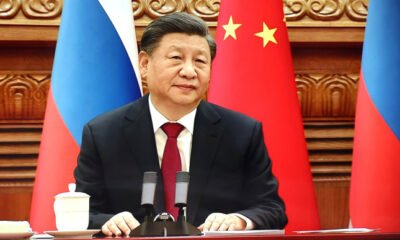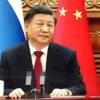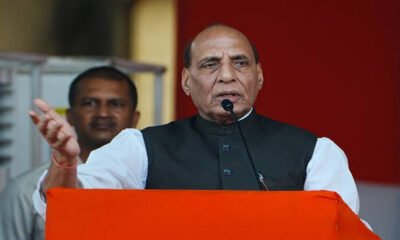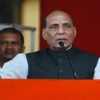National
India must ban china’s spy tool huawei: NINONG ERING
Huawei is a Chinese multinational technology company, founded in 1987 by Ren Zhengfei. It provides telecommunication equipment and sells consumer electronics and smartphones. In 2018, it overtook Apple to become the second largest smartphone manufacturer in the world after Samsung electronics.
Recently, in the United States, Trump administration had placed it on the “entity list”, thus limiting the business US companies could do with it. As a consequence of this action, US based Google blocked Huawei’s access to Android updates, which is one of the most widely used mobile operating system. Further, UK based chip designing company, ARM along with many other global companies also ceased all activities with Huawei in fear of sanctions from the US government. All these things raise a question, whether India should disallow or ban Huawei from operating on the Indian soil?
Huawei is already a deeply entrenched player in the Indian market for telecom gear due to its cost competitiveness. Its equipment is reportedly 20 to 30% cheaper than those of its competitors. It has been estimated that India saved roughly USD 3.5 billion in 2018 by sourcing telecom equipment from China. As such, Huawei is the primary enabler of this saving.
Ninong Ering urged PM Modi to ban Chinese Spy tool Huawei
Under Chinese law and Chinese governance in practice, Huawei very likely could not refuse any demands for cooperation or information from the Chinese government and it could be reasonably expected to make such demands. Given the opaqueness of the Chinese regime, it will be all the more difficult to find out if any such demand has been made by the government. Chinese law is perfectly explicit on these matters: Chinese firms are required to help with all requests of intelligence gathering or requests for information by public officials. Furthermore, the Chinese state shall have access to all data held by Chinese companies or foreign firms in China at any time. It is important to mention here that the founder of the company Mr Zhengfei was formerly an engineer in the country’s army and joined the Communist Party in 1978. All these facts point towards the imminent threat which the company poses to not only privacy of the citizens of India but also to the national security.
With the edge over other tech companies that Huawei possess with respect to 5g technology, it is important to restrict Huawei’s presence in India as it would hamper domestic research and development due to its competitive pricing. Further, the requirement of large number of equipment in 5g technology would mean an increase in presence of Huawei in India which is interconnected with the previously discussed security threat.
Bihar Young Thinkers Forum (BYTF) organised its first meet
India is the world’s second largest mobile phone manufacturer. Between 2016 and 2022, India is expected to attract investments worth Rs 44,265 crore in the smartphone manufacturing sector. So, a ban on Huawei would be a big boost to the domestic smartphone manufacturing industries as Chinese companies have a policy of undercutting local companies.
The incursion of Chinese army in Ladakh, the violence and tension that followed and the negligence of the Chinese government with respect to covid 19 pandemic has forced us to reconsider our trade policies with China and Chinese companies and given the involvement of the Chinese government with Huawei, it is important that swift action be taken against the company. Therefore, it is necessary that the presence of Huawei in the Indian market be reconsidered by the government. As for the 5G technology, a delay in 5G would be much better than a loophole in the national security, further, this delay would in a way benefit the domestic industries. A similar ban on grounds of threat to security was put on Google’s Pixel 4 and 4 XL. Further, a ban on goods manufactured by Huawei would clearly set out India’s stance against any possible threat to its security, whether cyber or trade.























